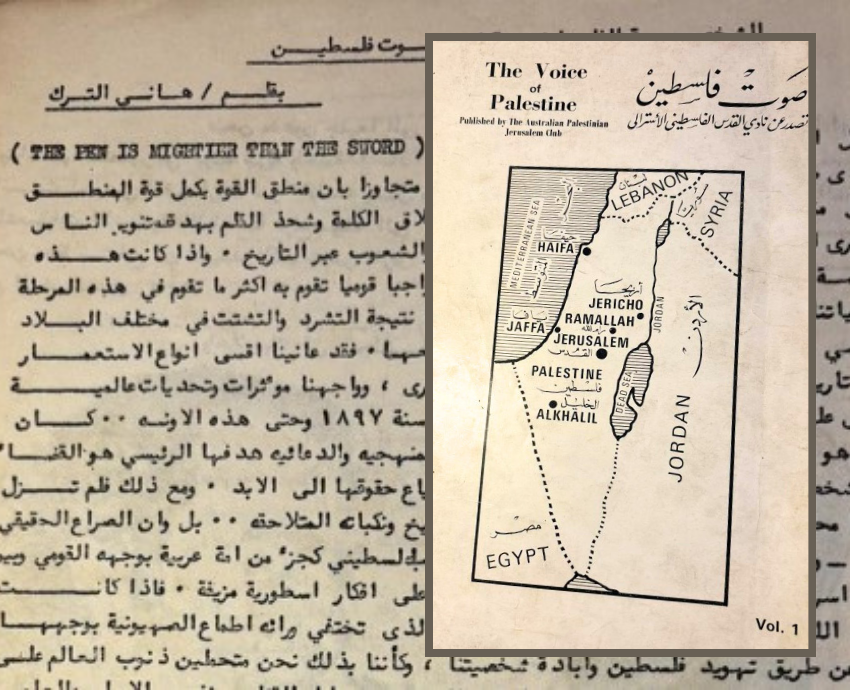
Pro-Palestinian solidarity activists in Australia have been spreading information about the tragedy of the Palestinian people and the legitimacy of their revolution to Australian society for decades.
Some Australian leftist solidarity articles were written during the 1936 revolution, also known as the great Palestinian general strike during the British Mandate in Palestine. This was followed by many leftist articles and seminars after the 1948 war and the Palestinian Nakba (Catastrophe).
Pro-Palestinian activists protesting in support of the Palestinian people began to appear in the streets of Melbourne’s city centre in the early 1960s.
After the Naksa (Six Day) War in 1967 and the occupation of all Palestinian lands, the voice of pro Palestinian activists was heard in all Australian cities in support of the Palestinian people. Student groups and unionists’ associations supporting Palestine were formed and radio programs were launched.
Along with the Australian leftist movement, there were great efforts by Lebanese community activists who were the pioneers in organising the ranks of the Arabic community and pushing them to participate in activities in support of Palestinian rights. This began with political and literary seminars in the mid-1960s.
As for the Palestinian community, it did not begin to form its associations until the mid-1970s. Perhaps one of the most important of these was the Palestinian Club in Sydney, which is considered to be one of the oldest associations of the Palestinian community in the cultural and artistic fields.
I recently obtained a hard copy of the first issue of an Arabic language magazine called Sawt Falastine (Voice of Palestine), published by the Palestinian Club in January 1974, from my teacher and mentor, the great Palestinian journalist Hani El Turk, author of The Palestinians in Australia and journalist with the Arabic language El Telegraph newspaper, which was launched in Sydney in the mid-1970s.
I wrote to ask him: “You are the most Arab journalist who urges the sons and daughters of the Arabic communities to have a broader understanding of cultural and artistic life in Australia. You used to write in Arabic about life in Australia for members of the Arab community until you became an important reference for everyone who wants to know about Australia. The question is: Where is Palestine and the support for the Palestinian revolution in your writings?
“He answered: I used to write in many of the bulletins issued by the pro Palestinian activists group in both Arabic and English. When the Palestinian Club was founded, we issued many bulletins and periodicals. If you read the first issue of Voice of Palestine magazine, which was published in 1974, you will know that the editors of this magazine were highly skilled journalistic cadres, and that they were very revolutionary and exposed themselves to danger because Australia at that time considered the Palestinian revolution to be a terrorist movement and did not recognise any representation of the Palestinians, and we were accused of being supporters of terrorism.
“Finally, I send to you an electronic, illustrated copy of the first issue of Voice of Palestine magazine.”
We will continue to work to document the struggles of the Palestinian and Arab communities in Australia and the association of pro Palestinian activists in Australia who started their solidarity to support the Palestinian people and their just revolution.
[Khaled Ghannam is a Palestinian activist, author, writer and journalist based in Gadigal/Sydney. He co-founded the Australian Palestinian Cultural Centre and the Al-Entilakah Research Centre and is a member of the General Union of Historians and Archaeologists in Palestine. This is a translated and edited version of an article that first appeared on his website at: https://khaledghannam.com/.]